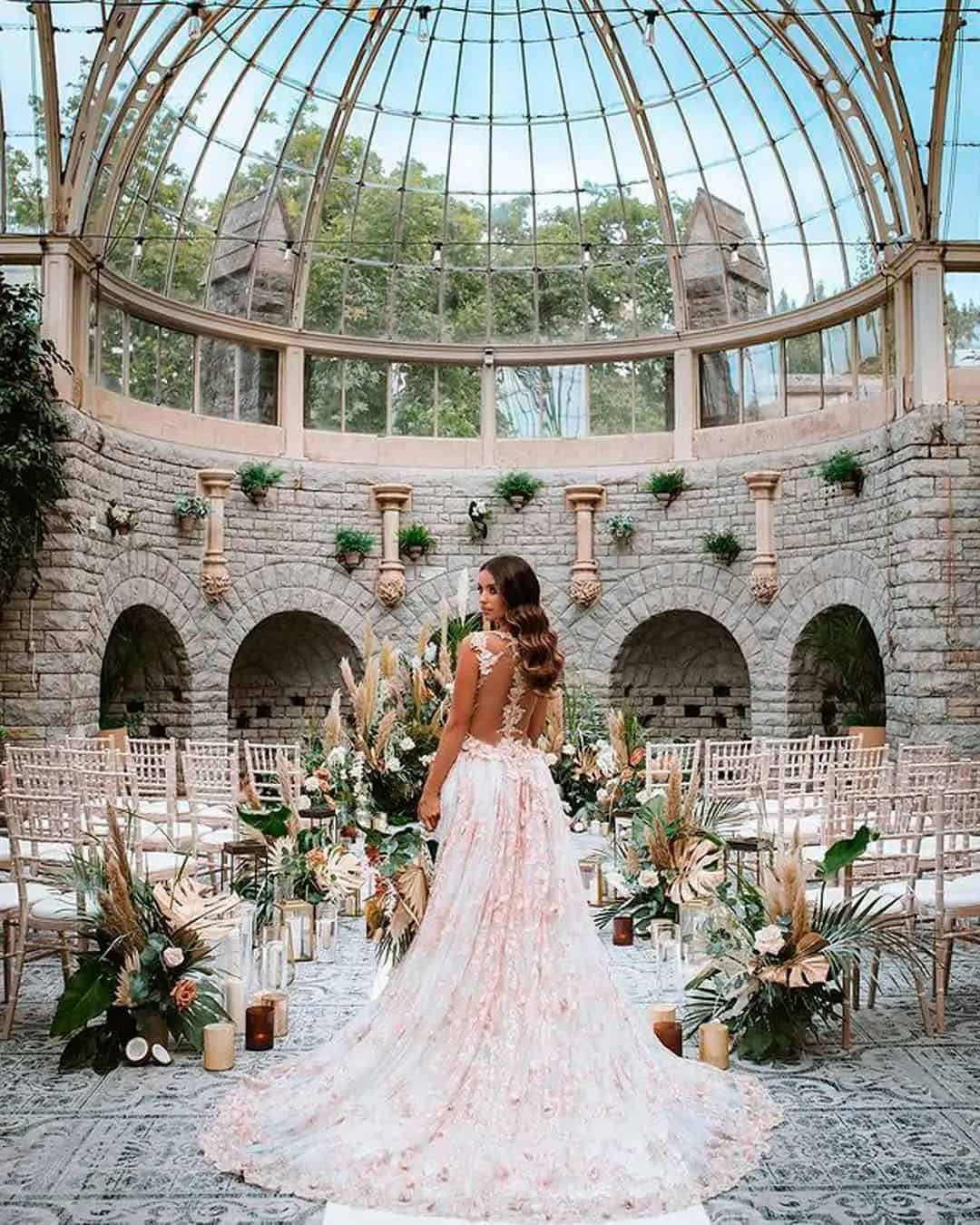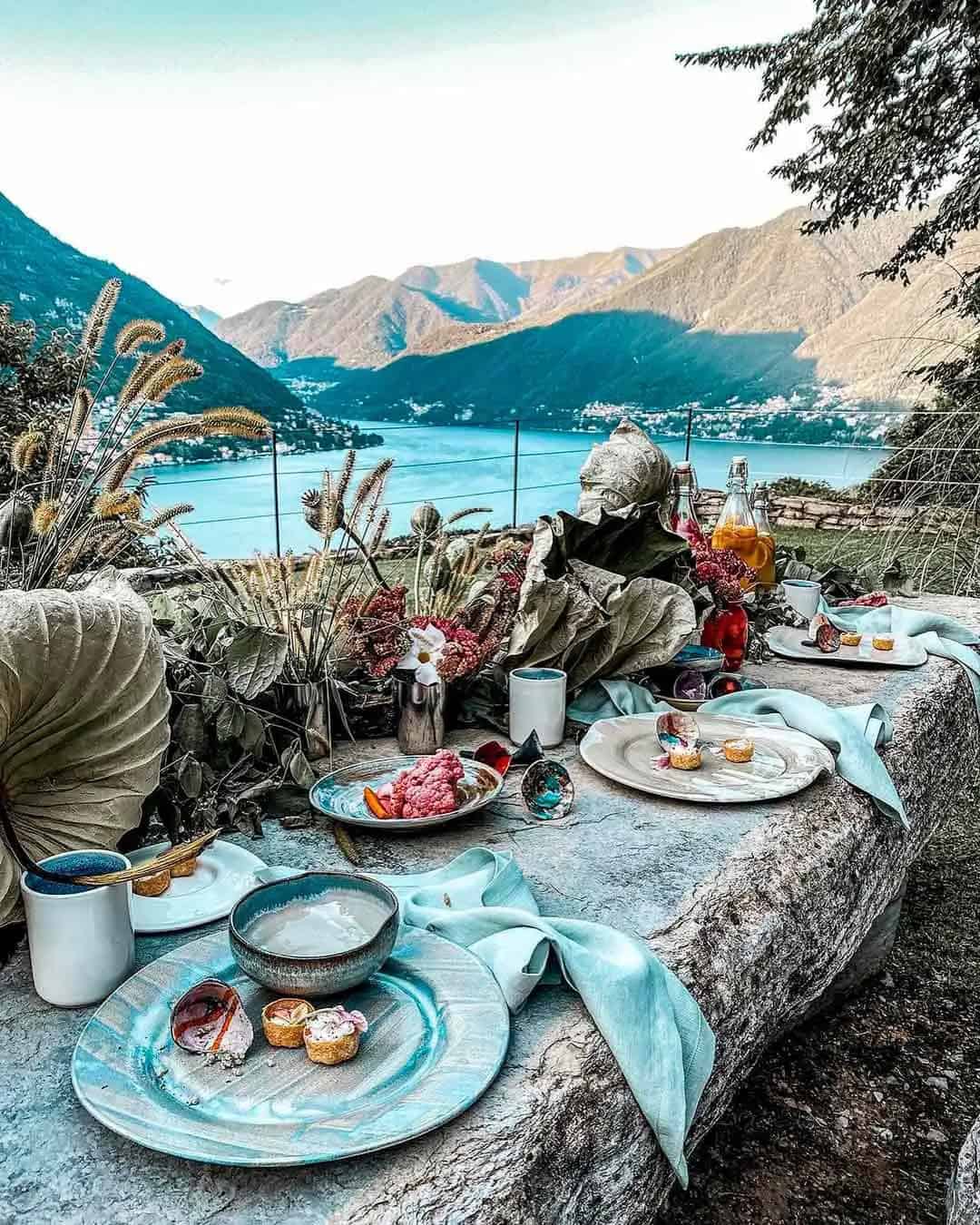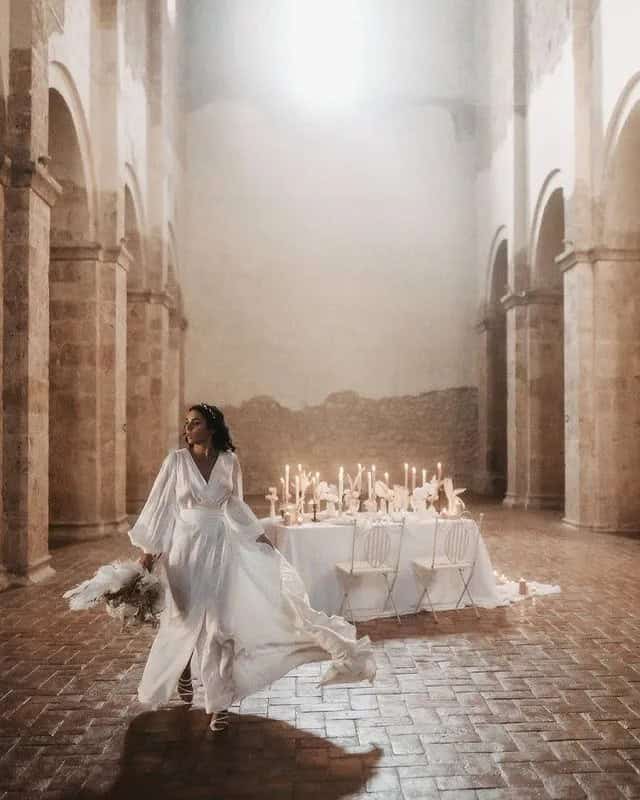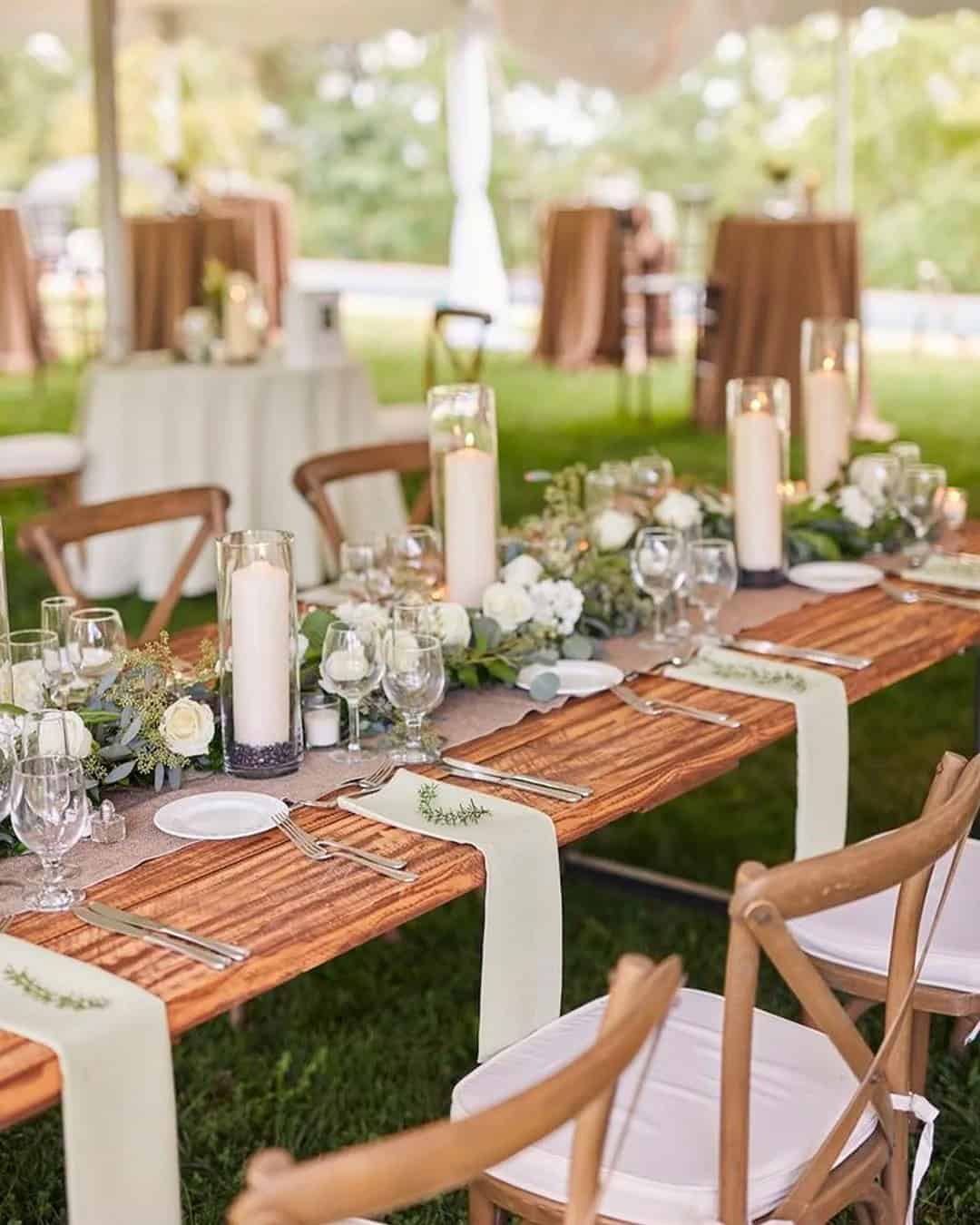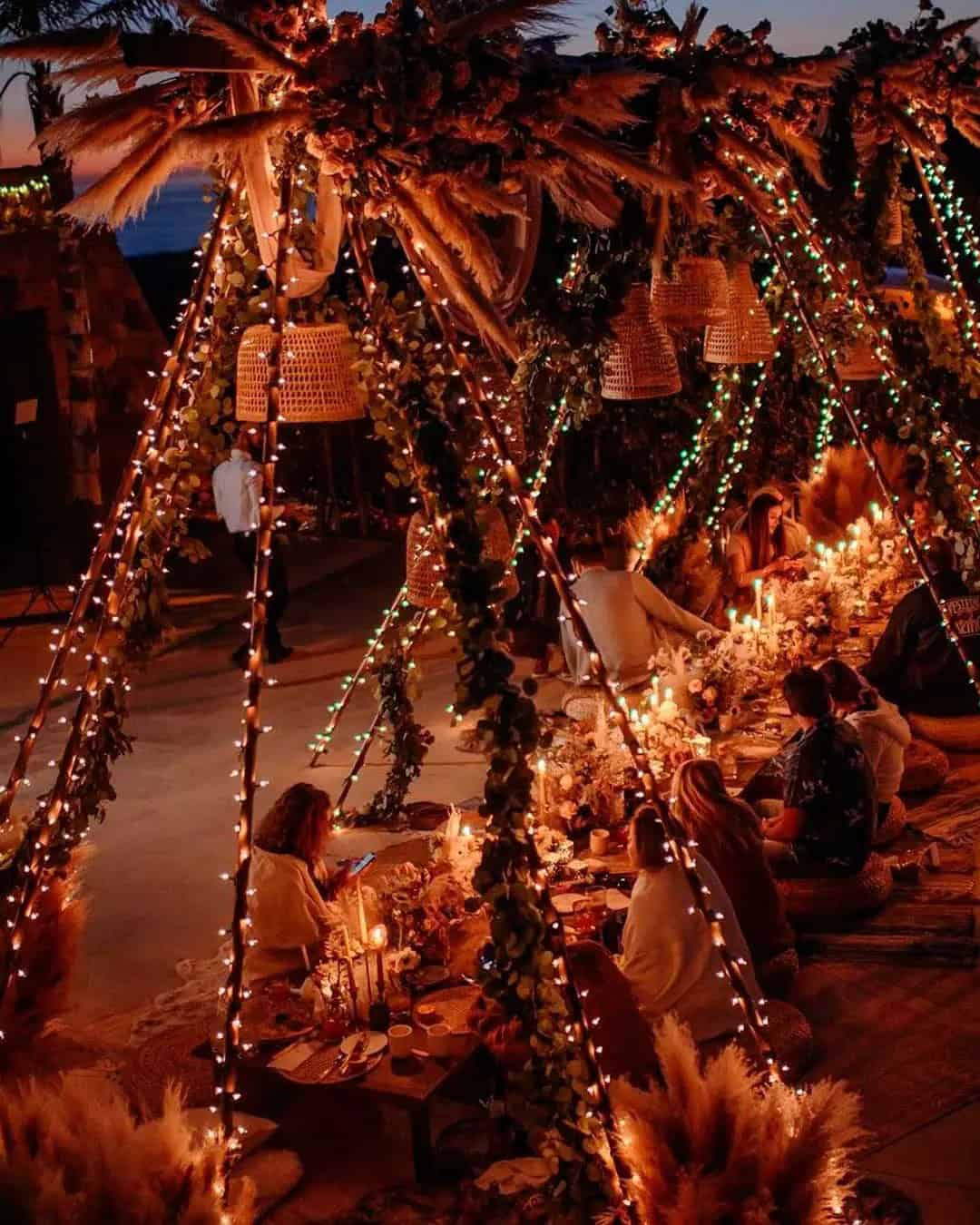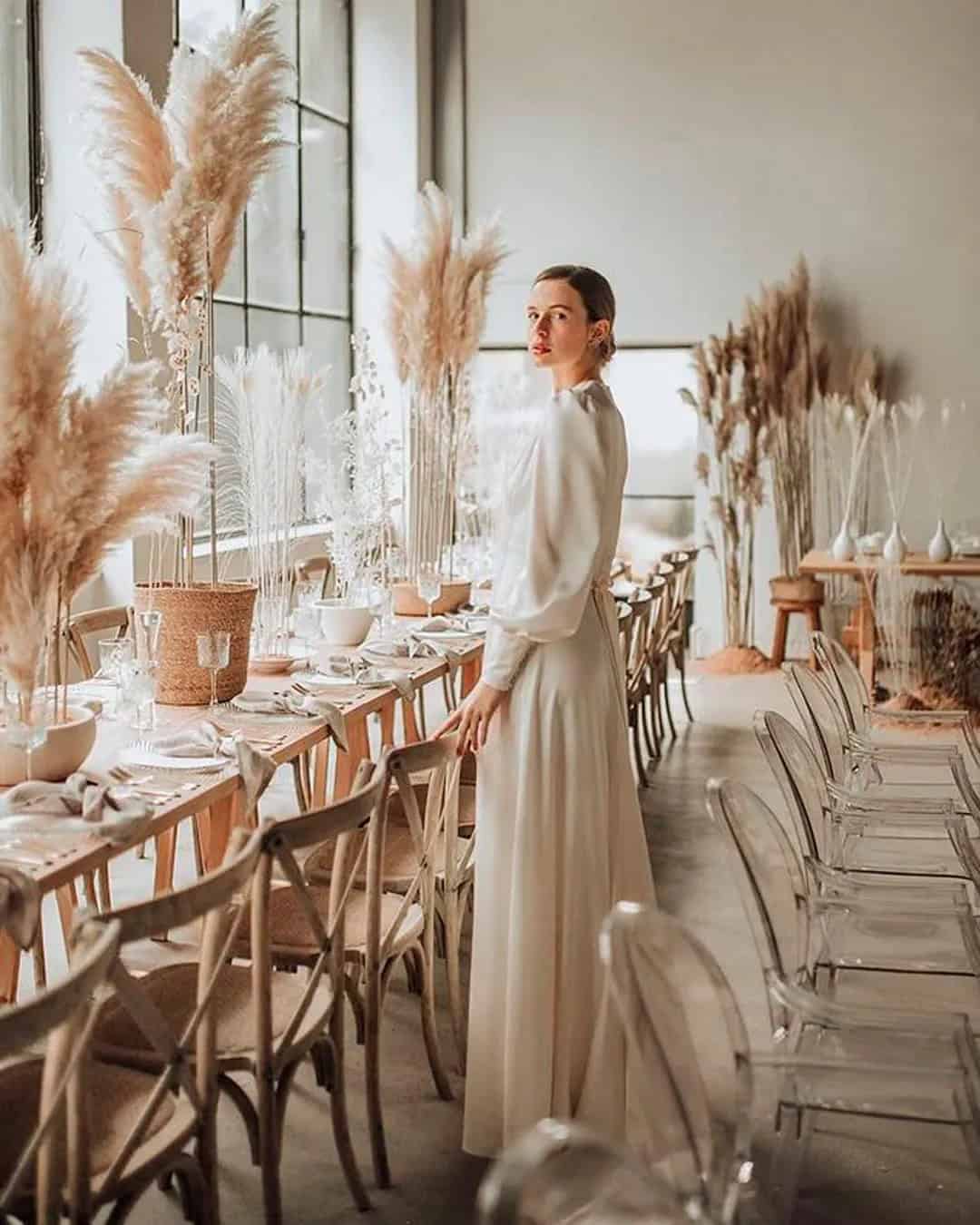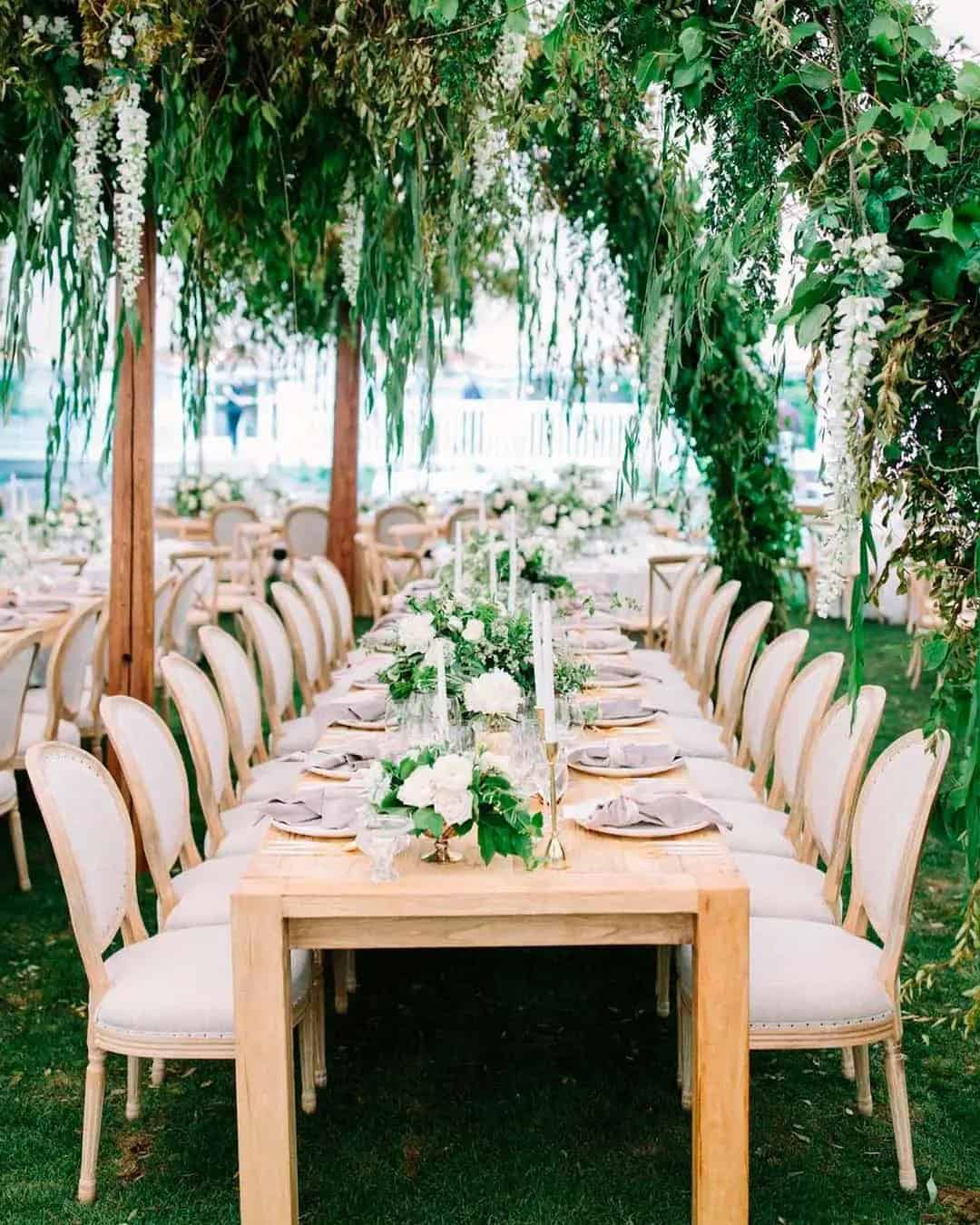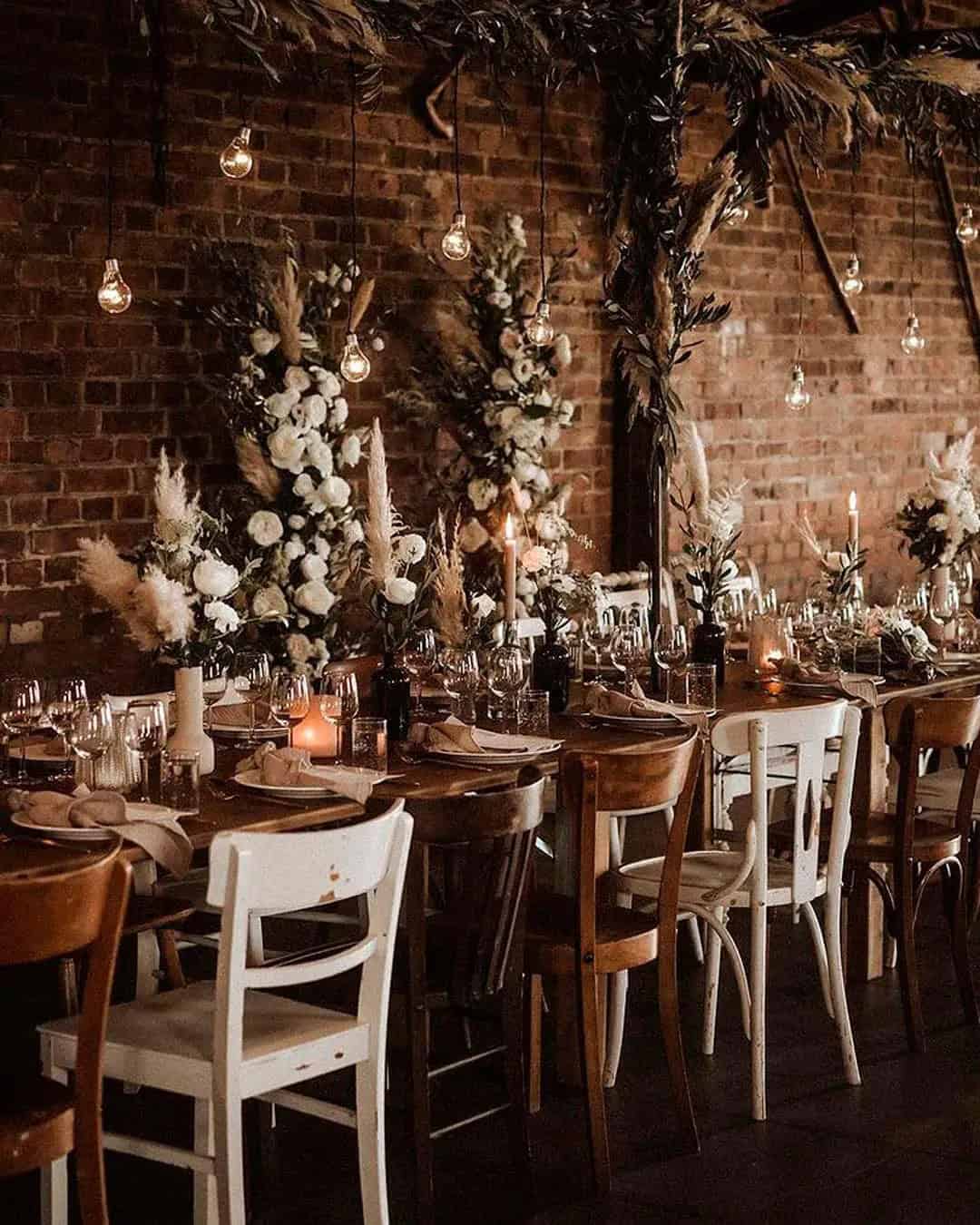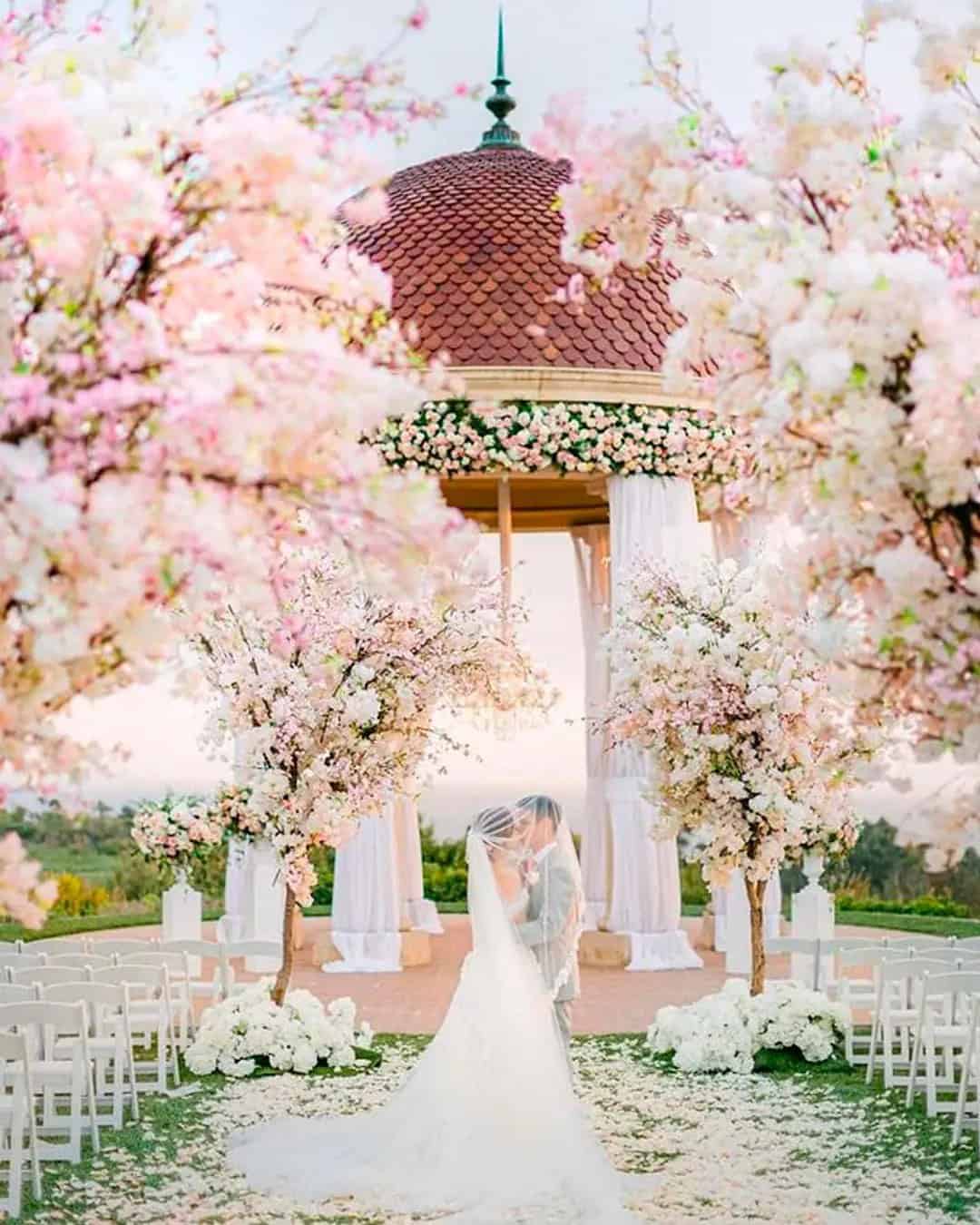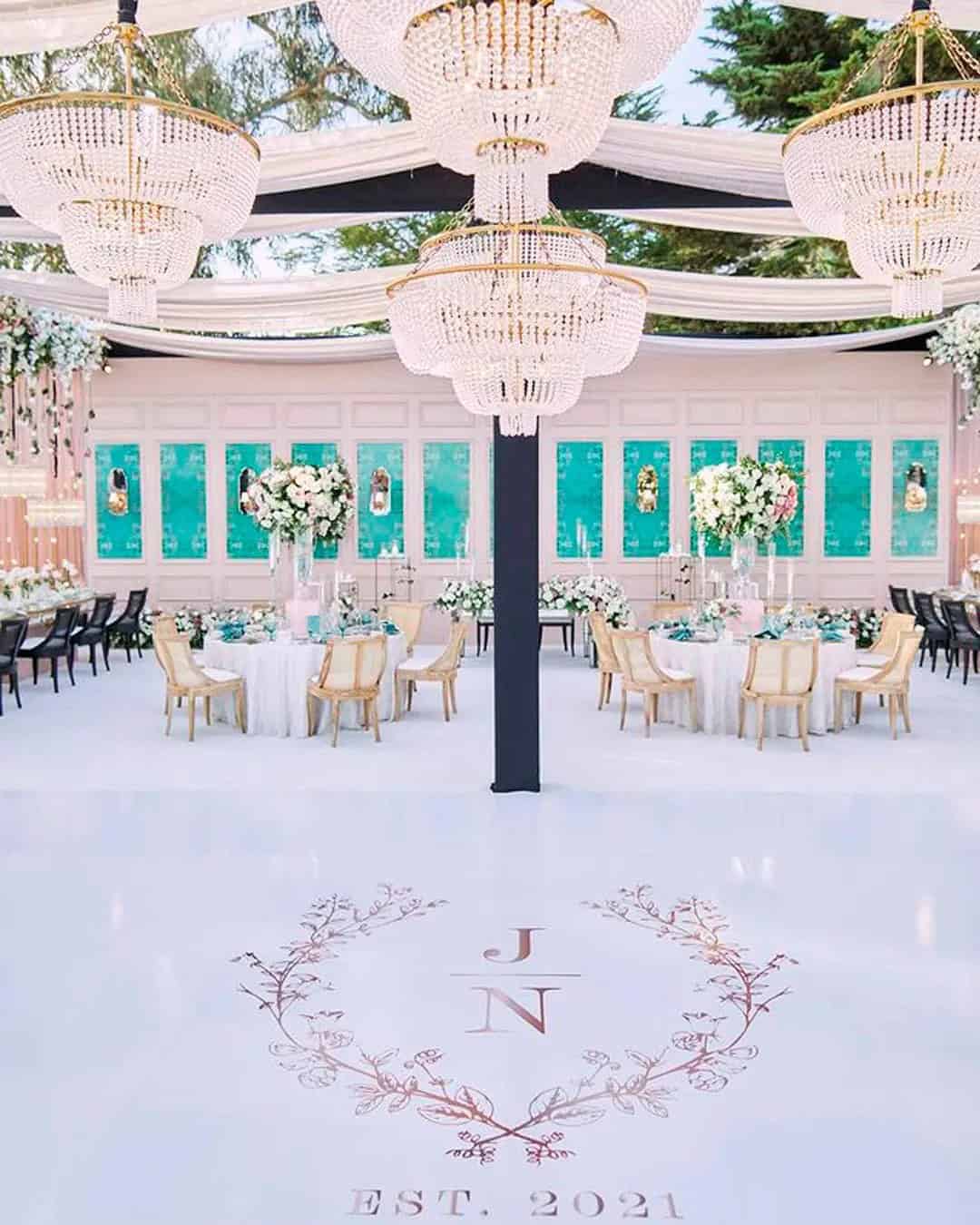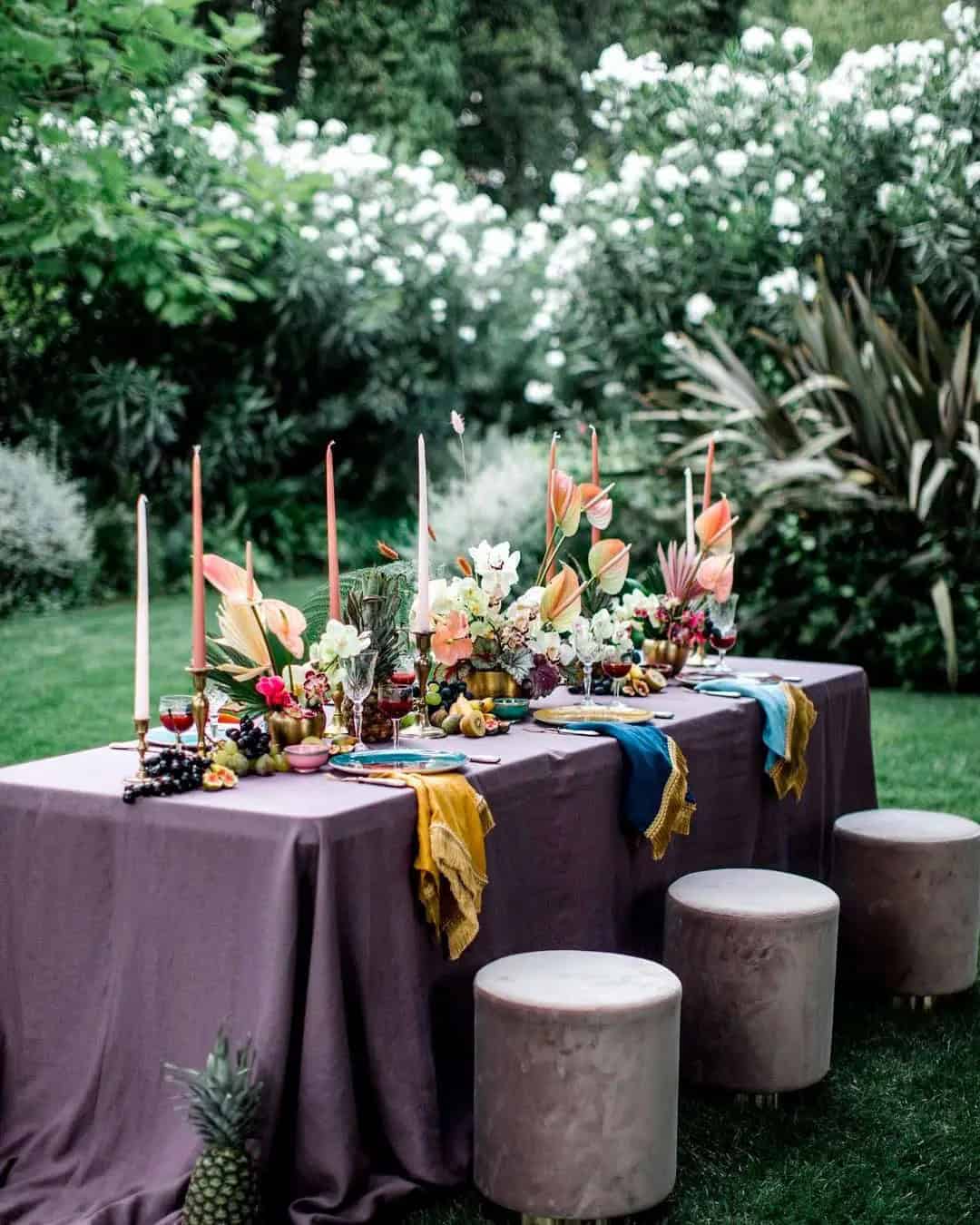When you’re engaged, the excitement is palpable. As you start planning your special day, a crucial aspect to consider is setting a realistic budget. The cost of a wedding venue can be daunting, especially when factoring in various expenses. To help you navigate this process, we’ll delve into the average costs of wedding venues, what impacts their pricing, and provide valuable insights on what’s included in your chosen venue.
We’ll also explore additional costs to watch out for, offer a cost estimator tool, and share tips on how to stay within your means. Furthermore, we’ll cover essential questions to ask before booking your ideal location, as well as some often-overlooked hidden costs that can blow your budget.
The Average Cost Of Wedding Venues
This captivating image, courtesy of photographer Chelsea White, serves as a stunning introduction to our journey.
The average cost of the wedding reception venue
Couples are allocating a significant chunk of their overall wedding budget, typically between 40-50%, towards securing the perfect ceremony and reception venues. The average cost of these crucial elements comes out to around $12,500, with some couples opting for more extravagant options that can push the total up to a whopping $35,000 or so.
However, it’s reassuring to know that even the most discerning couples can find stunning reception venues within their budgetary constraints – all without breaking the bank at an average cost of less than $3,000.
Average Wedding Venue Cost by Time of Year
In the United States, the cost of a wedding venue varies greatly depending on the time of year. According to industry statistics, spring weddings (March to May) typically range from $3,000 to $8,000, while summer nuptials (June to August) can cost anywhere from $5,000 to $12,000.
Fall weddings (September to November), which are often considered the most romantic season, average out at around $4,000 to $10,000, and winter weddings (December to February) tend to be more budget-friendly, with prices ranging from $2,000 to $6,000. These averages take into account factors such as demand, weather, and availability, but it’s essential to note that costs can fluctuate significantly depending on the location and specific venue offerings.
To ensure a stress-free planning process and potentially lower costs, couples are advised to book their desired date well in advance.
The average cost of a wedding ceremony venue
To cut straight to the chase, the average cost of wedding ceremony venues – essentially half of your overall expenditure – comes out to around $6,000. While it’s true that affluent couples are shelling out as much as $50,000 on luxurious hotel spaces, there’s no compelling reason why you can’t host a truly memorable event for a fraction of the cost, with expenses staying well within the realm of a few hundred dollars.
What Impacts A Wedding Venue’s Cost?
The timing of a wedding and its purpose significantly influence how much a venue costs. For instance, opting for a formal banquet hall during peak season (late spring to early fall) can result in a premium price tag. Conversely, booking an unconventional venue like a national park during the off-season may lead to significant savings. When examining venue prices, it’s essential to factor in hidden costs.
Be sure to review the fine print to ensure that your chosen venue provides all necessary essentials, such as chairs, food, and drinks. The location of the venue also plays a crucial role in determining its cost. A comparison between an average banquet hall in Manhattan and one in Sandpoint, Idaho, reveals a significant price disparity. The number of invited guests is another critical factor that affects wedding venue costs. The more attendees, the greater the need for space and accommodations.
Larger venues naturally come with higher prices, as many caterers charge on a per-person basis. To avoid breaking the bank, it’s wise to keep your guest list manageable by limiting it to close friends and family members.
What Does A Wedding Venue Include?
When considering a wedding venue, it’s essential to factor in more than just the initial price tag. A seemingly affordable option can quickly become costly when you add up the costs of rentals and services. For instance, a $1000 venue might balloon to $4000 or more due to added expenses like equipment rentals, catering, and staff. To avoid sticker shock, make sure to ask about what’s included in the venue rental fee.
This should include details on the number of hours you’ll have access to the space, as well as any services such as menu options, DJ, decor, florals, shuttle services, security, linens, and seating. Some venues may even offer an in-house coordinator or additional staff to help with your big day. By carefully reviewing what’s included and comparing prices, you can get a better sense of the overall value for your money.
With so many options available globally, it’s crucial to weigh the pros and cons of each venue to find one that fits your budget and meets your needs. As Bertie, a seasoned wedding event planner, advises, don’t just focus on the initial cost – consider what you’ll get in return for your investment.
Additional Wedding Venue Costs
When it comes to wedding venues, it’s easy to get caught up in the excitement of finding the perfect spot. However, there are some often-overlooked expenses that can add up quickly. Make sure to factor in parking costs, tips for staff, taxes, and fees from third-party vendors. In downtown areas, off-site parking can be expensive, so be sure to compare costs with transportation options before placing your deposit. When researching venues, don’t assume they’re providing all the necessary services.
Ask about who’s responsible for tasks like bathroom attendants, bartenders, and coat checks. These staff members should be compensated just like waiters at a nice restaurant. One final consideration is cleanup. Who’s responsible for disposing of leftover food, dirty linens, and decor? If it’s not explicitly stated in your contract, you may end up with additional fees. As experts recommend, the choice of wedding venue is crucial.
It must be perfectly adapted to your event’s needs, from reception capacity to space configuration, location, and availability. When renting a venue, you can often privatize it entirely for an unforgettable experience with loved ones in a unique setting. This comes at a cost, however. Depending on the venue, the price may include exclusive use of the space, maintenance costs, utilities, cleaning, administrative expenses, and more.
Be sure to find out what’s included or not before booking, as each venue is different and can provide a detailed quote.
Wedding Venue Cost Estimator
When planning your dream wedding, it’s essential to have a clear understanding of the costs involved. To help you get started, we’ve compiled a list of average wedding venue rental estimates that cater to different settings and budgets. This will ensure you’re only exploring options that align with your financial goals.
On average, you can expect to pay:* Community or Event Center: $1,000 to $5,000* Country or Private Club: $5,000 to $20,000* Banquet Hall: $3,000 to $15,000* City Buildings: $2,000 to $8,000* Museum or Art Gallery: $3,000 to $10,000* Brewery or Winery: $2,000 to $10,000* Hotel or Resort: $5,000 to $30,000* Barn: $3,000 to $15,000* National or City Park: $500 to $5,000Please note that not all of these estimates include full-service packages, and you may need to factor in additional fees (approximately $850 on average).
Moreover, consider the costs of hiring professionals for services such as:* DJ: approximately $1,700* Security: around $500* Rental Furniture: approximately $2,000
How To Save Money On A Wedding Venue
When it comes to wedding receptions, one of the most significant opportunities for cost savings lies in trimming down your guest list as much as possible. This reduction in numbers has a ripple effect, opening up more affordable venue options and reducing expenses across the board. For couples looking to pinch every penny, consider choosing a full-service venue that can handle both the ceremony and reception.
By consolidating services and rentals, you’ll avoid duplicating costs and enjoy significant savings. Another creative approach is to bring your own when it comes to drinks and food. A cash bar and potluck menu can help keep costs in check, regardless of the number of guests invited. And if someone in your inner circle has a talent for DJing or photography, consider enlisting their services as part of your wedding gifts.
DIY decor projects can also be a great way to save money while still adding personal touches to your special day. Take advantage of group DIY sessions leading up to the wedding to create unique decorations that reflect your style and personality. Of course, it’s essential not to sacrifice important wedding experiences in the name of cost savings. Invest your time and energy instead of breaking the bank, and you’ll have a truly unforgettable celebration.
According to wedding planner Marie Chicchirichi, having your ceremony and reception at the same venue can be an attractive option for budget-conscious couples. ‘It’s generally more interesting to do it in the same venue as your reception,’ she notes. ‘You’ll avoid rental fees for a second location, travel expenses for vendors, and delivery costs for equipment.’ Marie advises comparing rates before making a decision and choosing the venue that best suits your needs.
Questions To Ask Before Booking A Wedding Venue
When planning a wedding, it’s easy to get caught up in the excitement and overlook the finer details. However, failing to ask the right questions can lead to unexpected fees and misunderstandings. To avoid this, vendors have a vested interest in ensuring that you have an amazing experience and leave with a positive impression. To achieve this, it’s crucial to ask the following questions:* Who is your main point of contact?* Is the venue available on your preferred date?
* What are the dimensions of the dance floor?* How accessible are audio-visual equipment and services?* Are there separate entrances for caterers and other vendors?* Is parking available on-site or off-site?* Can special needs guests be accommodated?* Can you take a tour of the venue? Don’t hesitate to inspect unusual spaces like coat checks, kitchens, and bathrooms to ensure they meet your standards.
In addition to these practical considerations, it’s essential to understand the rules and policies governing your event. Obtain a comprehensive list of what’s included in your package, and confirm everything in writing. A formal contract ensures that both you and the vendor are on the same page, eliminating any potential disputes or surprises. To keep costs under control, calculate your total expenses before finalizing anything.
Add up the venue fees, as well as any additional extras, to get a clear picture of the overall cost. You might find that investing in a higher-end venue that includes many amenities ultimately proves more cost-effective than opting for what appears to be a cheaper option upfront.
Wedding Venues Hidden Costs
Rustic Barn Venue Hidden Costs
Planning a rustic country-themed wedding in a barn? While it’s a perfect setting, you’ll need to consider several factors before your big day. First and foremost, restrooms are a must-have. If the barn doesn’t have them, you’ll need to provide your own, which can add up quickly. To keep your guests comfortable, you may also need to rent heaters or fans depending on the season.
Don’t forget about electricity – if the barn lacks it, you’ll need to bring in a generator to power any necessary equipment. Cleaning and lighting are also crucial considerations. You’ll want to hire a commercial cleaning crew to get rid of any unwanted critters and debris, and unless the barn has plenty of natural light, you may need to supplement with additional lighting. With these details taken care of, your rustic wedding is sure to be a memorable one.
The Great Outdoors Venue Hidden Costs
When choosing an outdoor wedding venue, it’s essential to factor in additional costs that come with hosting your special day under the sun. Whether it’s a beachside celebration, a vineyard affair, or a backyard bash, these hidden expenses can add up quickly. Here are some unexpected costs you might need to consider. Firstly, tents are often necessary to ensure a dry and comfortable experience for your guests, regardless of the weather.
This, of course, requires lighting and decorations that align with your wedding theme. On top of this, permits, location fees, and insurance may be required if you’re hosting the event in a public place like a beach or park. Another crucial consideration is a secure dance floor. You want to ensure that your guests can move freely without slipping or falling on uneven terrain. This might require subflooring for grassy areas or installing a sturdy surface for pavement events.
Finally, don’t underestimate the importance of a high-powered sound system. Outdoor weddings can be loud and chaotic, making it essential to invest in top-notch audio equipment that ensures everyone – including your guests and speakers – can hear every moment of your special day.
Destination Wedding Hidden Costs
When considering an exotic or dream location for a magical wedding, it’s essential to be realistic about the costs involved. Destination weddings can come with unexpected expenses that can quickly add up if not planned for properly. One crucial aspect is planning trips: at least one visit to your desired location before the big day will help you budget for transportation costs, hotels, food, and other travel expenses beyond the cost of travel for the actual wedding trip.
This includes paying for the airfare of vendors like florists, DJs or bands, hairdressers and makeup artists, as well as family members or members of the bridal party. Additionally, decorations, favors, and other essentials will need to be shipped, adding to your overall expenses.
It’s also crucial to research regional marriage requirements, as most countries have laws requiring couples to be present in the country a certain number of days before the wedding (France, for instance, requires 40 days notice). This may incur extra costs for hotel stays and other travel arrangements. Furthermore, foreign taxes and exchange rates can impact every expense, although some destinations may offer cost savings.
Finally, consider that not all guests may be able to attend your destination wedding, so you may need to host a second celebration at home, incurring additional expenses.
Fancy Hotel Or Banquet Hall Venue Hidden Costs
Many hotels offer comprehensive wedding packages, on-site planning, and amenities, but they may not fully cater to your unique needs. You’ll still encounter extra costs associated with the venue. Some common hidden expenses include power drop charges, which arise when your equipment’s energy demands surpass the hotel’s electrical capacity. This might happen if you’re hosting a high-energy event with music, lighting, and other power-intensive elements.
Additionally, you may face corkage fees for serving non-standard or specialty beverages that aren’t part of the hotel’s usual offerings. Furthermore, hiring external vendors like caterers, florists, or bakers can also incur extra costs. As you plan your special day, be sure to factor these potential expenses into your overall budget.
Overtime Costs For All Venues
While it’s understandable that receptions can run long, exceeding the expected timeframe can result in additional charges from hotels, cleanup crews, and garbage removal services. These vendors often book their services on a same-day basis, which means that if your reception goes past midnight, you’ll be faced with overtime costs. However, we’re not here to dampen your wedding enthusiasm!
On the contrary, our goal is to prepare you for any unexpected expenses that may arise during the planning process. By doing your research and having a Plan B in place, you can ensure that your special day goes off without a hitch. Factor in potential issues that tend to crop up at the last minute, and make sure to set aside some extra funds for unforeseen expenses. With this approach, you’ll be able to enjoy the wedding of your dreams – and more!
